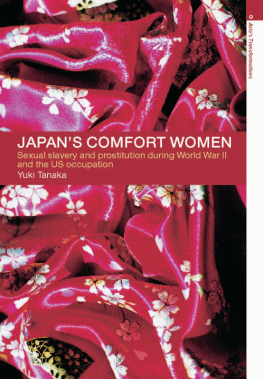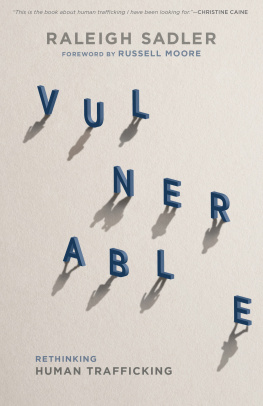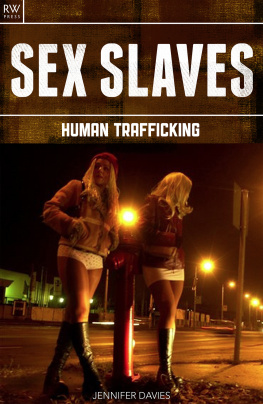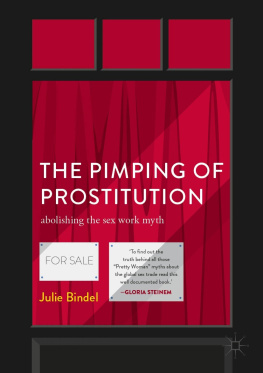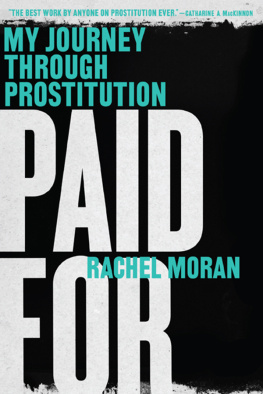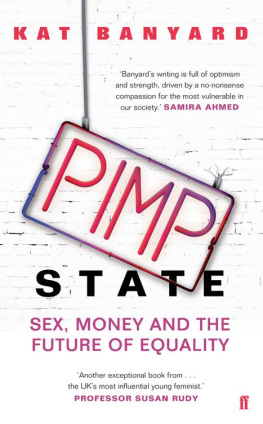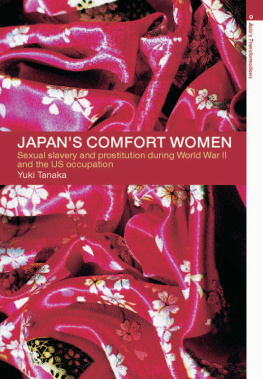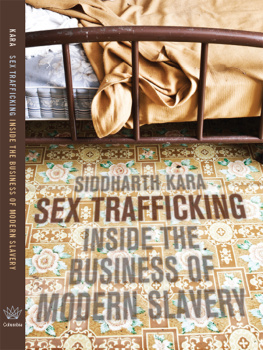NOT A CHOICE, NOT A JOB
ALSO BY JANICE G. RAYMOND
The Transsexual Empire: The Making of the She-Male
A Passion for Friends: Toward a Philosophy of Female Affection
The Sexual Liberals and the Attack on Feminism,
ed. with Dorchen Leidholdt
RU 486: Misconceptions, Myths and Morals,
with Renate Klein and Lynette J. Dumble
Women As Wombs: Reproductive Technologies
and the Battle over Womens Freedom
NOT A CHOICE, NOT A JOB
EXPOSING THE MYTHS ABOUT PROSTITUTION AND THE GLOBAL SEX TRADE
JANICE G. RAYMOND

2013 by Janice G. Raymond
All rights reserved
Potomac Books is an imprint of the University of Nebraska Press
Library of Congress Cataloging-in-Publication Data
Raymond, Janice G.
Not a choice, not a job : exposing the myths about prostitution and the global sex trade / Janice G. Raymond. First edition.
pages cmIncludes bibliographical references and index.ISBN 978-1-61234-626-7 (hardcover : alk. paper)ISBN 978-1-61234-627-4 (electronic)1. Prostitution. 2. Human trafficking. I. Title.HQ118.R39 2013
306.74dc23
2013006152
Printed in the United States of America on acid-free paper that meets the American National Standards Institute Z39-48 Standard.
Potomac Books
22841 Quicksilver Drive
Dulles, Virginia 20166
First Edition
10 9 8 7 6 5 4 3 2 1
In Memory of
Raquel Edralin Tiglao , the Philippines, 19472001
Zoraida Ramirez Rodriguez , Venezuela, 19492002
Denise Pouillon Falco , France, 19162013
CONTENTS
PREFACE
In mainstream media articles about sex trafficking and prostitution, we read prostitution is inevitable, prostitution is the oldest profession, men need the sex of prostitution, legalized prostitution regulates the industry, prostitution is a choice. In progressive media, we are told prostitution is sex work, trafficking is migration for sex work, prostitution is a job, like any other service job, the numbers of trafficking victims are wildly exaggerated in both NGO and government estimates, trafficking is a myth, trafficking and prostitution are not the same.
This book challenges these claims based on many years of experience working on issues of trafficking, prostitution, and the global sex industry. From 1994 to 2007 as codirector of the Coalition Against Trafficking in Women (CATW), an international non-governmental organization (NGO), I worked with victims of prostitution and trafficking, national and international policymakers, womens rights and human rights advocates, and the United Nations to promote the fundamental human right of women and children to be free from sexual exploitation and to develop programs in almost twenty countries on prostitution and sex trafficking.
A particular strength of CATW is that it combines education, research, and policy work with direct services and prevention programs for victims of trafficking and prostitution through its many coalitions and affiliates worldwide. CATW has been at the forefront of programs not only to prevent trafficking and sexual exploitation but also to teach young men in schools and communities about their role in creating the demand for prostitution as well as their potential role in being catalysts for change. CATW has also supported legislation that makes men accountable for their abuse of buying women and children for the sex of prostitution.
As an activist I have met hundreds of women in many countries who have been in systems of prostitution and whose lives have been ravaged by it. I have met women who thought they were migrating out of their countries for work and ended up in the sex industry. I have encountered runaway girls in the United States who left home because male relatives had sexually abused them, only to find themselves smooth-talked into the sex industry by pimps. I have been in brothels where I have seen girls as young as nine servicing male buyers. And I have talked with men who are habitual prostitution users and feel entitled to purchase womens and girls bodies to meet their alleged sexual needs.
Also as an activist I have learned that working against the sex industry is like working against nothing else that I have experienced. The industry has friends in high places and has become a major lobbyist on behalf of national and international legislation that would favor its expansion.
As a researcher I have published numerous articles on prostitution and sex trafficking, lectured internationally on these topics, and served as an expert witness in legal cases. I have testified before the U.S. Congress, the European Parliament, and legislative committees in various countries against the legalization and decriminalization of prostitution and the sex industry. A large part of my scholarly and activist life has been spent fighting the legal normalization of prostitution.
SCHOLARSHIP AND ADVOCACY: RESPONSIBLE RESEARCH
Research provokes responsibility if experience and ideas are to have any effect in the real world. In responsible research the researcher is accountable for her ideas and conclusions and works to make them tangible in society. If research shows that smoking is bad for a persons health, the researcher might promote programs and public policy that help to persuade people not to smoke, or serve as an expert witness in a legal case against the tobacco industry.
Scholarly advocacy means that the researcher does not float lightly above the fray. As a professor in a womens studies program in a large public university, I encountered many students who were victims of male violence against women. The content of womens studies classes often calls forth the experiences of women who have lived that content, especially when violence and sexual exploitation are discussed in the classroom. In meeting with students in my office, I would often hear that some were caught up in the sex industrystrip dancing that quickly became prostitution, or modeling that turned into pornography. I was aware that my role was not only to provide understanding, sensitivity, and help, but also some kind of framework about the complexities and confusions that plagued their experiences.
As I listened to the students speak in and out of classes, I knew that I was a witness to not only their individual experiences but also to the history and politics of sexual crimes against women. These encounters with students, and later with women and children abused for years in systems of prostitution and trafficking, were powerful testimonies that called for an analysis of the wider context in which the sexual objectification, abuse of, and violence against women are allowed to continue. For me this investigation also meant examining the common claims and arguments that subsidize the system of prostitution and the global sex industry and that truly mystify many.
Empirical research is important and valuable in any study for the evidence it produces. Some academics writing on trafficking and prostitution have interviewed few trafficked or prostituted women. For example, Ronald Weitzer is a sociologist best known for publishing critiques of researchers who conclude that prostitution is violence against women. His tack is to malign their research as advocacy. He especially has attacked evidence-based researchers, who have interviewed hundreds of women in prostitution, for not being evidence based. When we examine Weitzers own research, however, he proves to be a typical library-based scientist. His is the view of an armchair critic who has not published his own evidence-based interviews with prostituted women in the field.
Coincidentally those he criticizes, including myself, disagree with his conclusions countenancing state-sanctioned prostitution. Weitzer frequently claims that our research is tainted by our advocacy. However, a major difference between Weitzer and the scholars he criticizes is that we are honest about how our evidence grounds our advocacy and that we are activists who use our research to inform public policy. Weitzers work is bound by his own biases and by the information he cherry-picks to fit his particular ideological bent. Confirmation bias plays a large role in his essays, masked by the posture of an academic critic. Certainly, confirmation bias exists on both sides of the prostitution debate, but Weitzer pretends it doesnt feature in his own work or in the work of his ideological allies.
Next page


